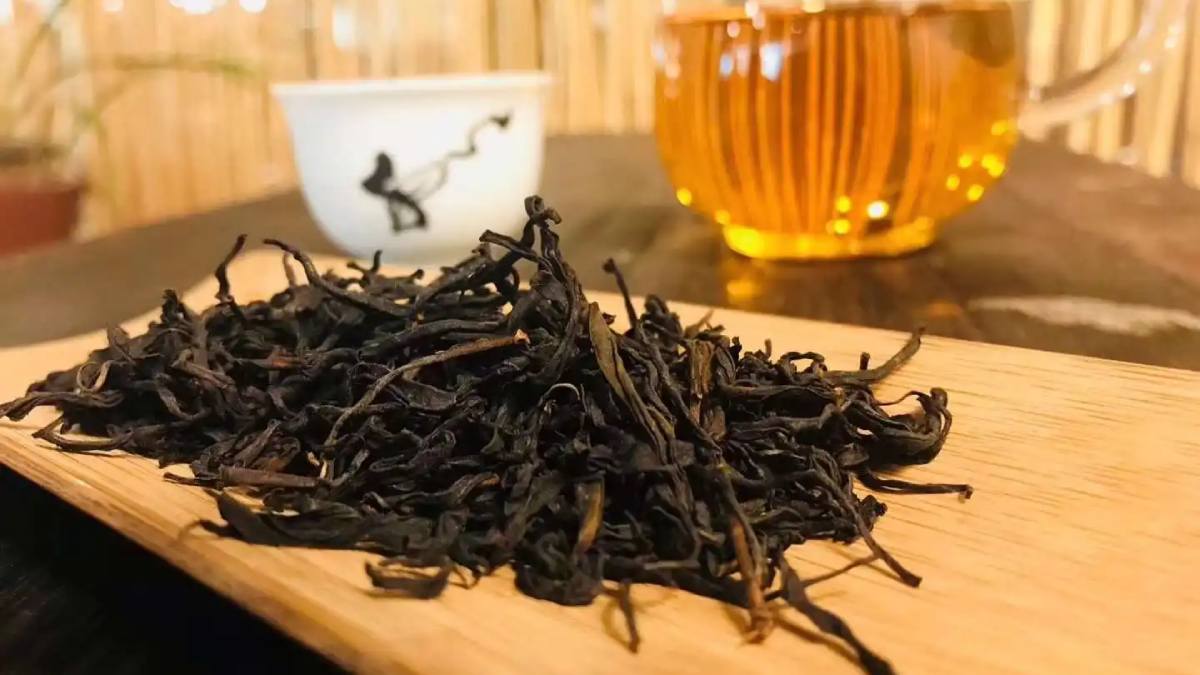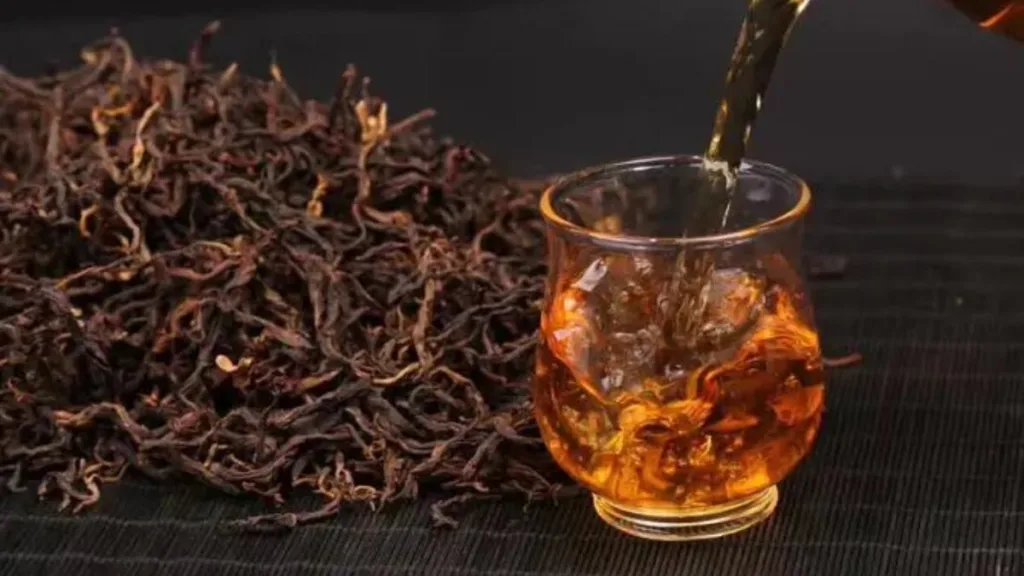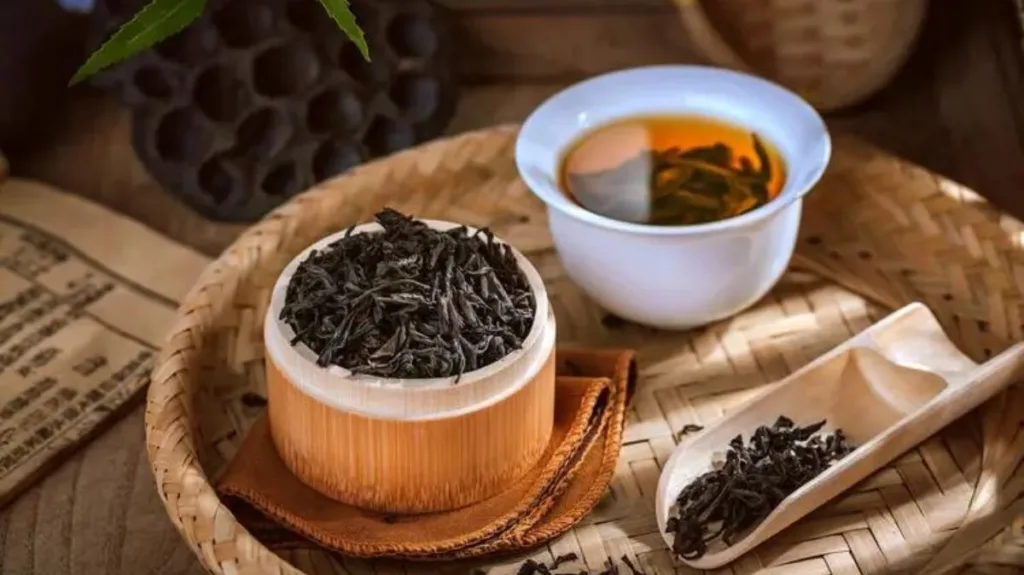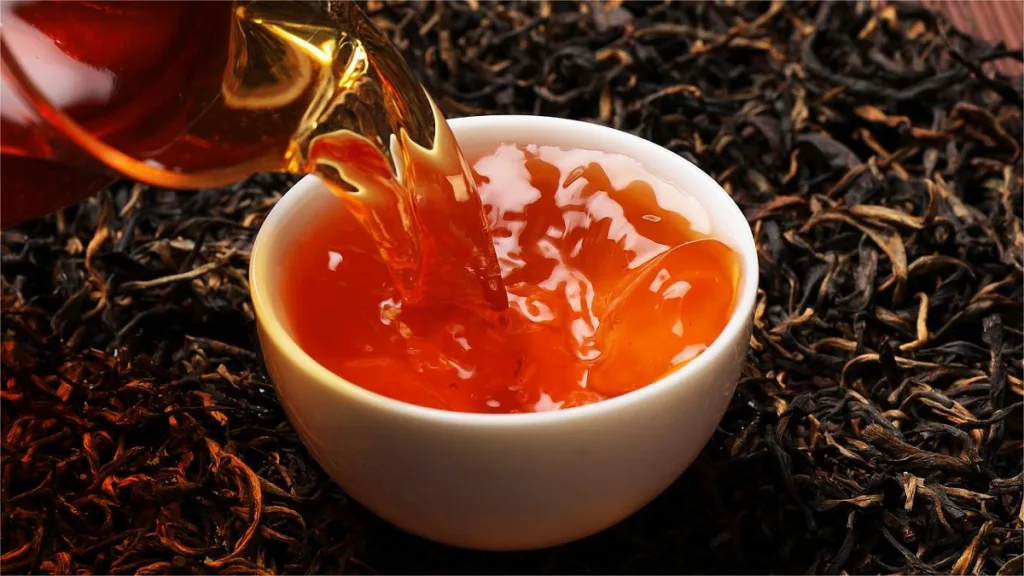Yihong Black Tea, also known as “宜昌红茶” in Chinese, is a renowned black tea produced in the western mountainous regions of Yichang and Enshi in Hubei province, China. It is also partially produced in neighboring counties such as Shimen, Sangzhi, and Cili in Hunan province. This region is characterized by its rugged terrain, dense forests, meandering rivers, moderate temperatures averaging between 13°C to 18°C, annual rainfall ranging from 750 to 1500 millimeters, a frost-free period of 220 to 300 days, and acidic yellow-red soils that are conducive to the growth of tea plants.
Yihong Black Tea is known for its tightly rolled, fine tea leaves with golden tips. It boasts a lustrous black color, a sweet and mellow aroma, a vibrant red liquor, a rich and full-bodied flavor, and leaves that appear bright red when infused. High-quality Yihong Black Tea often exhibits a phenomenon known as “hun,” where the tea liquid becomes more integrated and mellower after cooling.
History
Yichang and its surrounding areas have a rich history when it comes to tea production. As early as the Qin and Han dynasties, tea had been introduced to the Yichang region from Sichuan. During this time, tea was consumed as a boiled gruel, a step forward from the traditional practice of chewing tea leaves. Records from the “Yanzi Chunqiu” mentioned the consumption of tea gruel in the context of a meal, indicating that tea had become an integral part of the local diet. This marked the beginning of tea utilization in Yichang.
By the Three Kingdoms period, tea consumption had evolved even further. According to Zhang Yi, a scholar from the Wei dynasty (around 230 AD), tea leaves were processed into cakes, which were dried and powdered. These tea cakes could be crushed and brewed with added flavorings to create a tea soup or gruel.
Yihong Black Tea itself is believed to have been created in the mid-19th century. During the reign of the Daoguang Emperor (1820-1850) of the Qing Dynasty, a businessman named Fan Jun Dafu introduced black tea production techniques to Yichang from Guangdong. These techniques allowed for the processing of black tea from the region’s tea leaves. Later, in 1876, entrepreneurs like Gao Bingsan and Lin Zichen improved the tea processing methods, producing high-quality Yihong Black Tea in places like Wufeng and selling it in Hankou before being exported to Guangzhou. Yihong tea quickly gained popularity due to its excellent quality and was even sold to Western countries, making it a staple in the Western tea market. Following the establishment of Yichang as a trade port in 1876, the export of Yihong Black Tea increased significantly. According to records, by 1886, the annual export of black tea from Yichang reached around 150,000 piculs. Yihong Black Tea from Yichang was particularly favored by Western consumers.
Brewing Method
To brew Yihong Black Tea effectively, several key factors should be considered:
- Teaware Selection: It’s recommended to use porcelain, clay, glass, or plastic teaware. Porcelain teaware is preferred for its ability to enhance the tea’s aroma and flavor.
- Water Choice: Soft water with low calcium and magnesium content is ideal for brewing Yihong Black Tea. Spring water or mineral water are the best choices, with purified water as a suitable alternative.
- Tea Leaf Amount: The amount of tea leaves used should be approximately two-thirds of the teapot or teacup’s volume. The quantity of tea leaves can be adjusted depending on their age and freshness. Fresh leaves may require slightly less, while aged leaves can use a bit more.
- Water Amount: Make sure the water covers the tea leaves adequately. Pour more water than the volume of tea leaves to avoid brewing tea that’s too weak or too strong.
- Water Temperature: The water temperature for brewing Yihong Black Tea is typically around 85-95°C (185-203°F). Boiling water should be allowed to cool slightly before pouring it over the tea leaves.
- Pouring Technique: The method of pouring water into the teapot or teacup is crucial. It can affect the flavor and aroma of the tea. You can choose from a soft and gentle stream of water, a stable and moderate stream, or a strong and robust flow, depending on your preference.
- Steeping Time: The steeping time for Yihong Black Tea can vary depending on personal taste. A general guideline is to steep the tea for 1-5 seconds. Longer steeping times will result in a stronger and more robust flavor.
Health Benefits
Yihong Black Tea offers various health benefits:
- Antibacterial Effects: Yihong Black Tea contains flavonoids, which have antibacterial properties and can help prevent colds and flu. Some people also use black tea to gargle when they have a sore throat.
- Digestive Aid: Black tea can help with digestion and is often recommended for post-meal consumption.
- Antioxidant Properties: Research suggests that black tea is rich in flavonoids that have antioxidant effects, potentially reducing the risk of heart disease.
- Strengthening the Stomach: Yihong Black Tea is believed to be beneficial for gastrointestinal health. Drinking black tea with added red sugar is often recommended, especially for those who engage in physical labor.
- Anti-aging Effects: Studies have shown that black tea has a significant anti-aging effect and can extend lifespan.
- Reduced Risk of Heart Attack: The American Heart Association has stated that black tea, due to its high flavonoid content, can reduce the risk of heart attacks.
Remember that for optimal benefits, it’s important to drink black tea in moderation, and to pay attention to the quality and brewing method to fully appreciate its flavor and health advantages. Enjoy your Yihong Black Tea!



